English
Telefon pa Hubentud is a line of communication children have to anonymously share their frustrations, concerns or even traumas. They also receive guidance on how to deal with circumstances, including at home. According to director James Sneek, there is a growing need for this service.
Table of contents
Next article
Share this page
- Learning life skills at a young age so that you can be independent later
- Before having a child, men and women should have knowledge about parenting, and norms and values
- If problem behaviour is identified, all members of the family should receive support
- Children should be taught to respect themselves
- Parents should get tips about parenting via the internet, telephone, GP and radio
- Parents should spend more time with their family (cooking, talking about school and how they can look after each other, do activities together)
- Children need more attention from their parents. They currently spend too little time with each other.
A focus group with youths, selected via Telefon pa Hubentud, made recommendations on how to tackle domestic violence and abuse in Aruba and how to stimulate parents to practice positive parenting. These are, among others:
Tools, focus group
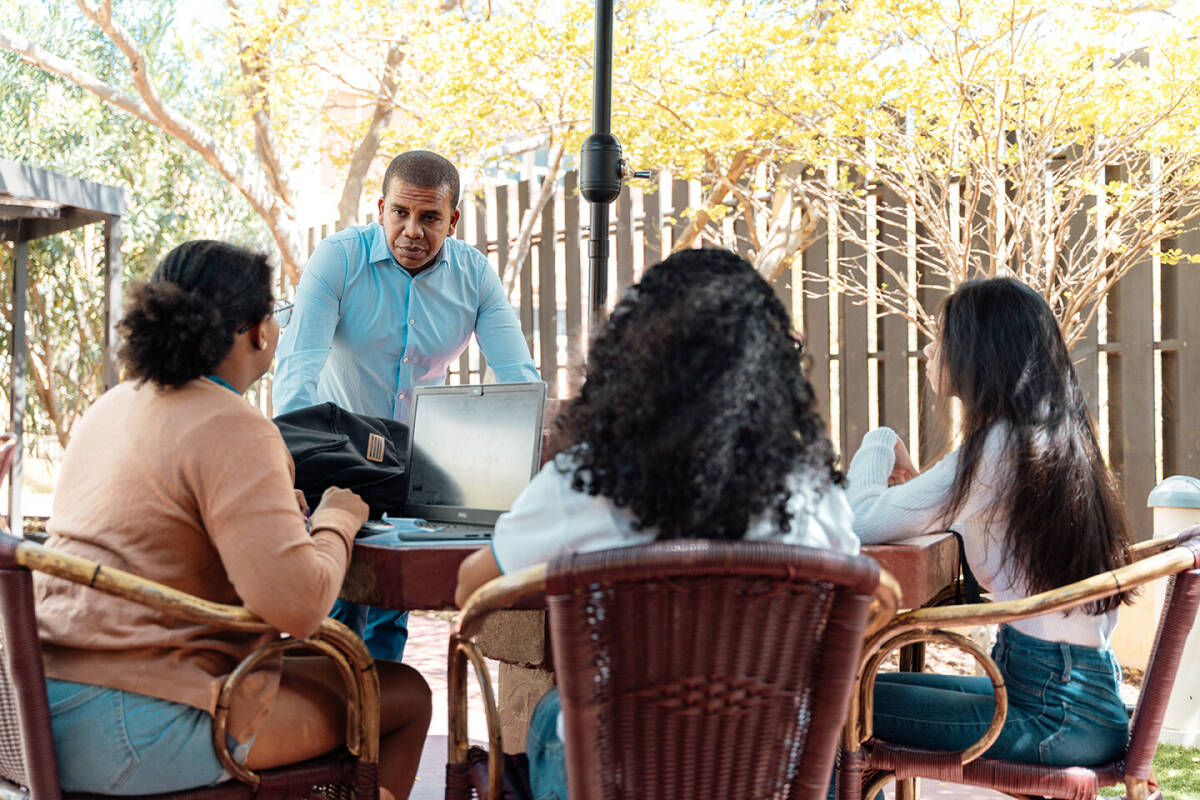
Goosebumps
Codigo di Proteccion
Rigorous training procedure
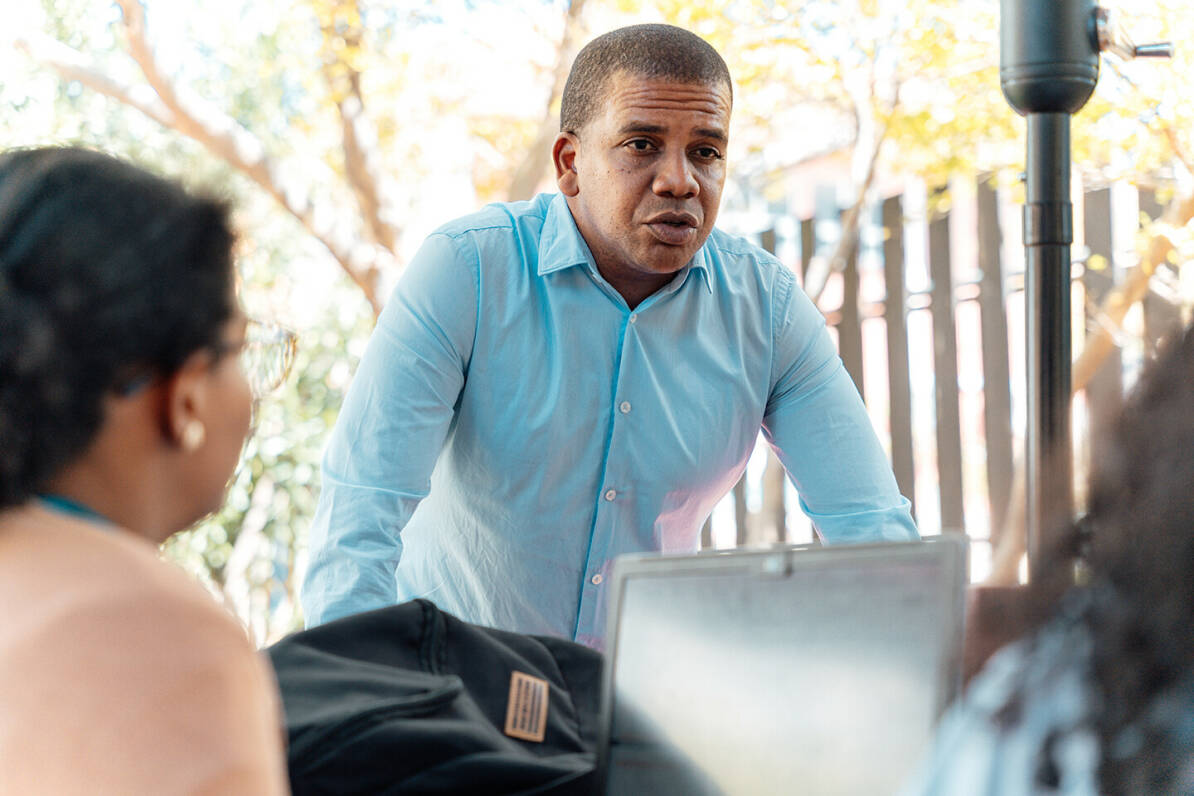
Telefon pa Hubentud is seeing an uptick of suicidal youngsters asking for help
“It is the children themselves who ask how they can improve communication with their parents”
“It is a monumental task to parent these days. Especially because of the ever-present internet, that allows for continuous online attacks”
Scroll down
Sneek, who has degrees in Social Judicial Service and Criminology, sees easy access to the internet influencing the development of youngsters, particularly those between the ages of 13 to 17. “This is the period children start pulling away from their parents, searching for their own self, yet wanting to belong to a collective. They are vulnerable to negative peer pressure. These children are easy prey to older teenagers who will expose them to sexuality, alcohol and drugs.”
According to James Sneek, the aim is to help children and youngsters become self-reliant, in an everchanging world and in a cultural environment that may cause a whiplash to the observant. Aruba is a society of mainly Caribbean and Latin American overtones with a European Dutch legal structure. “Parents tend to hold their children’s hands until they are eighteen. They will react to whatever is happening, for instance at school, without first figuring out if it is an issue their son or daughter can solve on their own.” By the time they are suddenly adults, many find themselves figuring out what to do next, without the decision-making and problem-solving skills required to deal with adulthood, Sneek notes.
But not all calls to Telefon pa Hubentud are disturbing. “We received a call from a grandmother, who dialled the line on behalf of her five-year-old grandchild,” Sneek says. “It gave me goosebumps. The child was at a presentation of Telephone pa Hubentud at school and urged her grandmother to call the number, because ‘it is important for children.’ Even though the line is for children eight and up, we are glad our message is reaching our target public.”
Much of the helpline’s work aligns with the Codigo di Proteccion guidelines, like the registration of cases according to gender, age and the advice provided. Telefon pa Hubentud has used a registration since its inception and as of 2011 is using a bi-annually updated, digital system. Mentors also consult with Bureau Sostenemi and James himself, who is a Codigo supervisor. “Mentors seek advice from each other and the staff when there is a difficult case and when necessary. In cases of mental health issues and abuse, mentors are directed what to say if the youngster calls again. Assessing safety and security of the callers is also a standard practice of Telefon pa Hubentud, which also fits within the Codigo guidelines.”
Getting families involved or providing assistance as required by the Codigo is more challenging, as all calls are anonymous. However, callers are coached on how to improve their safety. The protocol ‘Special Ear’ enables the mentor, upon the caller’s request for immediate help, to refer the case to Bureau Sostenemi in a short three-way call. Once the social worker is connected, the mentor will leave the call to ensure anonymity. This assistance is in line with the fifth step of the Codigo.
While services are available 24/7 via the website and app, the telephone lines are open from 2 p.m. to 6 p.m. The volunteers manning the telephone lines are called mentors. Other than listening, they also coach and provide guidance on how to navigate issues and overcome the problem at hand. The recruitment of mentors entails a rigorous application and training procedure, that includes courses, workshops, and retreats, as well as visits to the Correction Institution (prison) and orphanages. “Mentors are the backbone of our organisation,” Sneek says. “Without them, we are not able to reach out to children.”
At no time is this coaching process more important than when a life is at stake. One such event happened one December 23, when a young girl made the decision to call Telefon pa Hubentud. At first, she wanted assurance that she was completely anonymous. The chilling moment was right thereafter, when the girl informed that the mentor was about to listen to her last breath. She had just swallowed 23 pills. “The mentor did not panic and kept the girl talking, eventually convincing her to leave her bedroom and reach out to her mother, who was just a few meters away in a different room. The mother immediately took her daughter to the hospital to have her stomach flushed.” While the outcome was positive, the tragedy is that Telefon pa Hubentud is seeing an uptick of similar cases, namely of suicidal youngsters asking for help.
That is when the coaching kicks in. “We had a call from a girl who was being pressured by an ex-boyfriend who wanted more nude pictures of her, otherwise he would publish the one he had. We asked her if she thought that by sending him another one, he would stop. Finally, the mentor coached her on the steps to take, namely, to tell someone she feels comfortable with and have that person be with her, so she would not have to confront her parents alone.” Telefon pa Hubentud prompts children to tap into their own network for help, be that parents, friends, grandparents, aunts and/or teachers.
These are things the children themselves struggle with. The calls are anonymous, yet the information they provide show patterns. In 2016, Telefon pa Hubentud started collecting data which showed children wanted to talk about sexuality, drugs and bullying. Mental struggles along with abuse were the more prevalent cases reported by those who called. But concerns around family dynamics and communications, or lack thereof, is also high. “It is the children themselves who ask how they can improve communication with their parents.”
One simple tool parents have to combat this onslaught is to hold simple conversations with their children, according to James Sneek. Conversations about ‘nothing’ foster trust. “The simple method to prevent a child alienating themselves from parents and caretakers is to build up safe spaces and that starts with having easy conversations about nothing. While it is true parents have little time left in their busy schedules, scientific studies show just ten minutes of daily conversations is enough to build strong bonds of trust between parent and child.” Examples of conversations about nothing are questions on what happened that day, why a child felt slighted at school or even a parent telling the child about what happened at work. “Would you believe that there are children who do not even know what their parents do for work? Or that parents have no idea their children are awake until one a.m. playing games, or watching porno on their smartphones?”
The need for family assistance has become more urgent as parents are spending more time away from home. Mothers and grandmothers form a large part of the workforce nowadays, meaning children and teens are growing up without the traditional family supervision that was a given decades ago. “Take for instance a mother in De Vuyst, San Nicolas, who has to take the bus to her workplace in the hotel area,” says Sneek. “It takes her four hours daily, on top of her eight-hour work-shift. It is a monumental task to parent these days. Especially because of the ever-present internet, that allows for continuous online attacks. This is a world children need to learn to deal with.”
The Aruban Youth Telephone Line, Telefon pa Hubentud, facilitates parents knowing more about what is going on in their children’s lives, helps them with the challenging task of raising their children in a world marked by rapid changes, and the barrage of unfiltered information coming into a little device glued to the hands of most youngsters. “It saves lives.”
Mental urgencies
Prevent alienation
Peer pressure
Social and mental wellbeing
That is the conviction of Director James Sneek (45), who has been at the helm of the organisation for the past seven years. “Telefon pa Hubentud is a line of communication children have to anonymously share their frustrations, concerns, traumas, and to receive guidance on how to deal with circumstances, including at home.”
Telefon pa Hubentud, affiliated to Child Helpline International was launched on November 20, 1999, as an independent charity. With its distinctive telephone number ‘131’ and logo, it is aimed at children and youngsters from 8 - 24 years old. It has also become a valuable (anonymous) instrument to monitor the social and mental wellbeing of Aruban youngsters. “Society has been living in a constant state of crisis,” Sneek says. “From the coronavirus pandemic to the climate change, energy, and inflation crises and now we are bracing ourselves for a mental health crisis.”
Background
7 min
Director of Telefon pa Hubentud
James Sneek
A helpline for all kinds of problems
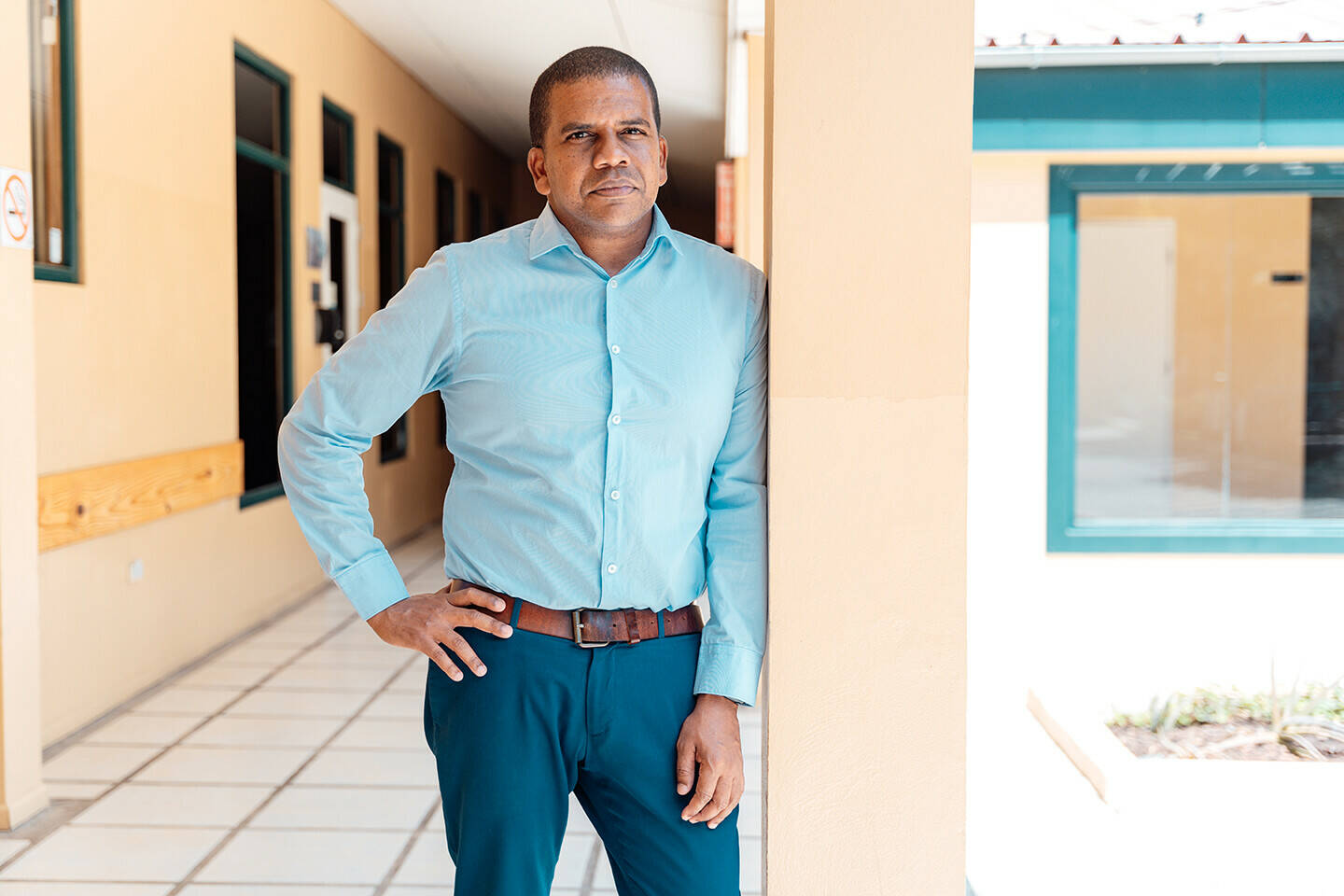
Table of contents
English
Next article
Share this page
But not all calls to Telefon pa Hubentud are disturbing. “We received a call from a grandmother, who dialled the line on behalf of her five-year-old grandchild,” Sneek says. “It gave me goosebumps. The child was at a presentation of Telephone pa Hubentud at school and urged her grandmother to call the number, because ‘it is important for children.’ Even though the line is for children eight and up, we are glad our message is reaching our target public.”
- Learning life skills at a young age so that you can be independent later
- Before having a child, men and women should have knowledge about parenting, and norms and values
- If problem behaviour is identified, all members of the family should receive support
- Children should be taught to respect themselves
- Parents should get tips about parenting via the internet, telephone, GP and radio
- Parents should spend more time with their family (cooking, talking about school and how they can look after each other, do activities together)
- Children need more attention from their parents. They currently spend too little time with each other.
A focus group with youths, selected via Telefon pa Hubentud, made recommendations on how to tackle domestic violence and abuse in Aruba and how to stimulate parents to practice positive parenting. These are, among others:
Tools, focus group
Goosebumps
Much of the helpline’s work aligns with the Codigo di Proteccion guidelines, like the registration of cases according to gender, age and the advice provided. Telefon pa Hubentud has used a registration since its inception and as of 2011 is using a bi-annually updated, digital system. Mentors also consult with Bureau Sostenemi and James himself, who is a Codigo supervisor. “Mentors seek advice from each other and the staff when there is a difficult case and when necessary. In cases of mental health issues and abuse, mentors are directed what to say if the youngster calls again. Assessing safety and security of the callers is also a standard practice of Telefon pa Hubentud, which also fits within the Codigo guidelines.”
Getting families involved or providing assistance as required by the Codigo is more challenging, as all calls are anonymous. However, callers are coached on how to improve their safety. The protocol ‘Special Ear’ enables the mentor, upon the caller’s request for immediate help, to refer the case to Bureau Sostenemi in a short three-way call. Once the social worker is connected, the mentor will leave the call to ensure anonymity. This assistance is in line with the fifth step of the Codigo.
Codigo di Proteccion

While services are available 24/7 via the website and app, the telephone lines are open from 2 p.m. to 6 p.m. The volunteers manning the telephone lines are called mentors. Other than listening, they also coach and provide guidance on how to navigate issues and overcome the problem at hand. The recruitment of mentors entails a rigorous application and training procedure, that includes courses, workshops, and retreats, as well as visits to the Correction Institution (prison) and orphanages. “Mentors are the backbone of our organisation,” Sneek says. “Without them, we are not able to reach out to children.”
Rigorous training procedure
Telefon pa Hubentud is seeing an uptick of suicidal youngsters asking for help
According to James Sneek, the aim is to help children and youngsters become self-reliant, in an everchanging world and in a cultural environment that may cause a whiplash to the observant. Aruba is a society of mainly Caribbean and Latin American overtones with a European Dutch legal structure. “Parents tend to hold their children’s hands until they are eighteen. They will react to whatever is happening, for instance at school, without first figuring out if it is an issue their son or daughter can solve on their own.” By the time they are suddenly adults, many find themselves figuring out what to do next, without the decision-making and problem-solving skills required to deal with adulthood, Sneek notes.
At no time is this coaching process more important than when a life is at stake. One such event happened one December 23, when a young girl made the decision to call Telefon pa Hubentud. At first, she wanted assurance that she was completely anonymous. The chilling moment was right thereafter, when the girl informed that the mentor was about to listen to her last breath. She had just swallowed 23 pills. “The mentor did not panic and kept the girl talking, eventually convincing her to leave her bedroom and reach out to her mother, who was just a few meters away in a different room. The mother immediately took her daughter to the hospital to have her stomach flushed.” While the outcome was positive, the tragedy is that Telefon pa Hubentud is seeing an uptick of similar cases, namely of suicidal youngsters asking for help.
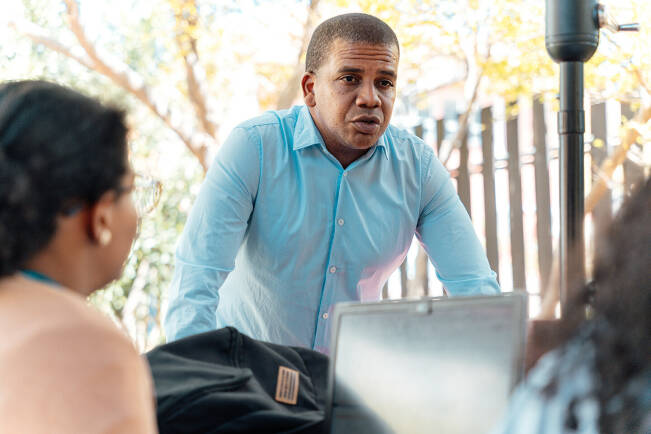
That is when the coaching kicks in. “We had a call from a girl who was being pressured by an ex-boyfriend who wanted more nude pictures of her, otherwise he would publish the one he had. We asked her if she thought that by sending him another one, he would stop. Finally, the mentor coached her on the steps to take, namely, to tell someone she feels comfortable with and have that person be with her, so she would not have to confront her parents alone.” Telefon pa Hubentud prompts children to tap into their own network for help, be that parents, friends, grandparents, aunts and/or teachers.
Mental urgencies
These are things the children themselves struggle with. The calls are anonymous, yet the information they provide show patterns. In 2016, Telefon pa Hubentud started collecting data which showed children wanted to talk about sexuality, drugs and bullying. Mental struggles along with abuse were the more prevalent cases reported by those who called. But concerns around family dynamics and communications, or lack thereof, is also high. “It is the children themselves who ask how they can improve communication with their parents.”
One simple tool parents have to combat this onslaught is to hold simple conversations with their children, according to James Sneek. Conversations about ‘nothing’ foster trust. “The simple method to prevent a child alienating themselves from parents and caretakers is to build up safe spaces and that starts with having easy conversations about nothing. While it is true parents have little time left in their busy schedules, scientific studies show just ten minutes of daily conversations is enough to build strong bonds of trust between parent and child.” Examples of conversations about nothing are questions on what happened that day, why a child felt slighted at school or even a parent telling the child about what happened at work. “Would you believe that there are children who do not even know what their parents do for work? Or that parents have no idea their children are awake until one a.m. playing games, or watching porno on their smartphones?”
Prevent alienation
“It is the children themselves who ask how they can improve communication with their parents”
Sneek, who has degrees in Social Judicial Service and Criminology, sees easy access to the internet influencing the development of youngsters, particularly those between the ages of 13 to 17. “This is the period children start pulling away from their parents, searching for their own self, yet wanting to belong to a collective. They are vulnerable to negative peer pressure. These children are easy prey to older teenagers who will expose them to sexuality, alcohol and drugs.”
Social and mental wellbeing
The Aruban Youth Telephone Line, Telefon pa Hubentud, facilitates parents knowing more about what is going on in their children’s lives, helps them with the challenging task of raising their children in a world marked by rapid changes, and the barrage of unfiltered information coming into a little device glued to the hands of most youngsters. “It saves lives.”
Telefon pa Hubentud is a line of communication children have to anonymously share their frustrations, concerns or even traumas. They also receive guidance on how to deal with circumstances, including at home. According to director James Sneek, there is a growing need for this service.
That is the conviction of Director James Sneek (45), who has been at the helm of the organisation for the past seven years. “Telefon pa Hubentud is a line of communication children have to anonymously share their frustrations, concerns, traumas, and to receive guidance on how to deal with circumstances, including at home.”
Telefon pa Hubentud, affiliated to Child Helpline International was launched on November 20, 1999, as an independent charity. With its distinctive telephone number ‘131’ and logo, it is aimed at children and youngsters from 8 - 24 years old. It has also become a valuable (anonymous) instrument to monitor the social and mental wellbeing of Aruban youngsters. “Society has been living in a constant state of crisis,” Sneek says. “From the coronavirus pandemic to the climate change, energy, and inflation crises and now we are bracing ourselves for a mental health crisis.”
The need for family assistance has become more urgent as parents are spending more time away from home. Mothers and grandmothers form a large part of the workforce nowadays, meaning children and teens are growing up without the traditional family supervision that was a given decades ago. “Take for instance a mother in De Vuyst, San Nicolas, who has to take the bus to her workplace in the hotel area,” says Sneek. “It takes her four hours daily, on top of her eight-hour work-shift. It is a monumental task to parent these days. Especially because of the ever-present internet, that allows for continuous online attacks. This is a world children need to learn to deal with.”
Peer pressure
Background
7 min
Director of Telefon pa Hubentud
James Sneek
A helpline for all kinds of problems
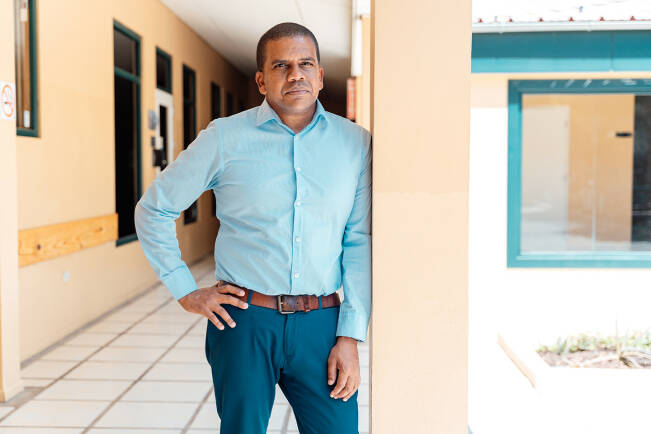
“It is a monumental task to parent these days. Especially because of the ever-present internet, that allows for continuous online attacks”